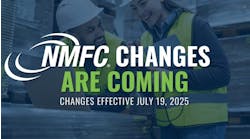The fact that a truck driver can be treated for sleep apnea and not lose his commercial driver’s license is a key piece of information that has yet to be reinforced within the trucking industry, according to Paul Valentine, president & CEO of Sleep HealthCenters (SHC).
“Until transportation companies are given accurate information regarding the screening, testing and treatment process, misconceptions will continue to surround the topic of sleep apnea and the public will remain at risk,” Valentine said.
Just last week, Celadon Trucking Co., acknowledging that sleep apnea played a role in a highway death involving one of its drivers, reached a $3 million settlement with a Texas family. John Lindsay was killed when his vehicle was rear-ended by the trucker who fell asleep at the wheel on a Texas interstate in May of 2010.
Evidence was expected to be introduced that would have shown the trucker had refused to treat his previously diagnosed sleep apnea and the company did not provide follow up care. As part of the agreement, Celadon has promised to educate its drivers regarding the dangers related to sleep apnea and truck driving.
The FMCSA website estimates that almost one-third of commercial drivers suffer from sleep apnea, Valentine pointed out.
“Companies need to put an effective sleep program in place with support and mandates from management that gets the at-risk drivers the treatment they need while keeping the freight moving,” Valentine said.
Each year, more and more companies are implementing sleep health assessment, diagnosis and treatment programs to improve the health, performance and safety of their employees, Valentine said. Effective sleep health programs are proven to lower healthcare costs and fatigue-related accidents, which improve employee performance and retention.
Soon, sleep apnea testing may be required for commercial truck drivers. On Wednesday, Dec. 7, 2011, the Medical Review Board and Motor Carrier Safety Advisory Committee of the FMCSA held a joint meeting to discuss sleep apnea and the effect it has on driver safety. As a result, the committees issued a proposal that would tie the likelihood of sleep apnea with body mass index (BMI) and recommended that any interstate commercial driver with a BMI of 35 or higher be evaluated for sleep apnea. Another recommendation listed five criteria that would result in a driver being immediately disqualified from driving.
Both of these recommendations are short-term guidances that are intended as stop-gaps until more permanent regulations can be adopted by the FMCSA, Valentine said. A draft of the permanent regulations is expected before the end of the first quarter of 2012.
Sleep HealthCenters is a network of specialized sleep medicine centers accredited by the AASM and staffed by board-certified sleep specialists. Sleep HealthCenters’ specialized sleep labs, clinics and programs provide all the required services needed to screen, diagnose, treat and support patients with sleep disorders.
Sleep HealthCenters’ National Services Group guides transportation companies through policy development, sleep apnea program education and sleep disorders management. SHC can also provide centralized care coordination, status tracking and follow-up communication between drivers, their medical examiners and local accredited sleep physicians.
Recently Sleep HealthCenters became the first multi-state provider of Out of Center Sleep Testing (OCST) to receive accreditation from the American Academy of Sleep Medicine (AASM). Sleep HealthCenters can provide OCST and treatment in almost every state by working with a network of accredited sleep centers, currently numbering over 200.


